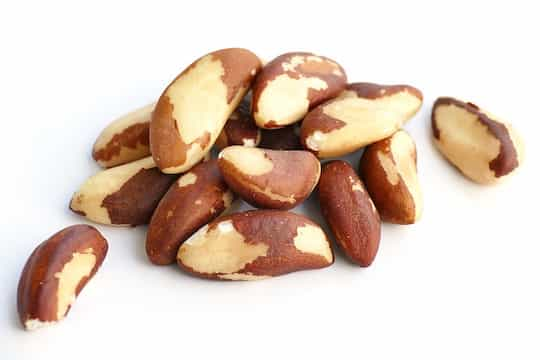Supplementation of this natural mineral can reverse memory loss and cognitive deficits.
Selenium is an essential nutrient found in many foods such as brazil nuts, fish, eggs, long-grain brown rice, beef, chicken, and milk.
This powerful antioxidant is important for our immune system, metabolism, thyroid function, and cognitive health.
According to a study, selenium can reverse the cognitive problems after a stroke and improve cognitive function including memory and learning.
Past studies have found that physical activity slows down age-related cognitive decline.
Exercise elevates the levels of upregulated proteins in the blood and one is selenoprotein P (SEPP1) that transports selenium to the brain.
Dr Tara Walker, the study’s senior author, said:
“We’ve known for the last 20 years that exercise can create new neurons in the brain, but we didn’t really understand how.”
The researchers wanted to know whether selenium supplements can mimic the effects of exercise on the aging brain.
In this experiment, mice were given Seleno-L-methionine (a form of selenium) for a month.
Dr Walker said:
“Our models showed that selenium supplementation could increase neuron generation and improve cognition in elderly mice.
The levels of new neuron generation decrease rapidly in aged mice, as they do in humans.
When selenium supplements were given to the mice, the production of neurons increased, reversing the cognitive deficits observed in aging.”
The research team also examined if selenium can reverse memory loss and improve learning function in people with brain injury after a stroke.
Dr Walker said:
“Young mice are really good at the learning and memory tasks, but after a stroke, they could no longer perform these tasks.
We found that learning and memory deficits of stroke affected mice returned to normal when they were given selenium supplements.”
However, a high intake of selenium supplementation in the long-term can cause serious health issue, thus, foods containing selenium seem to be a much better option.
Nuts, seafoods, legumes, eggs, whole grains, meat, and dairy products all contain selenium and so they can easily be added to the diet of the elderly and those with disability who are unable to exercise.
Dr Walker added:
“Selenium supplements shouldn’t be seen as a complete substitute for exercise, and too much can be bad for you.
A person who is getting a balanced diet of fruits, nuts, veggies and meat usually has good selenium levels.
But in older people, particularly those with neurological conditions, selenium supplements could be beneficial.”
The study was published in the journal Cell Metabolism (Leiter et al., 2022).

